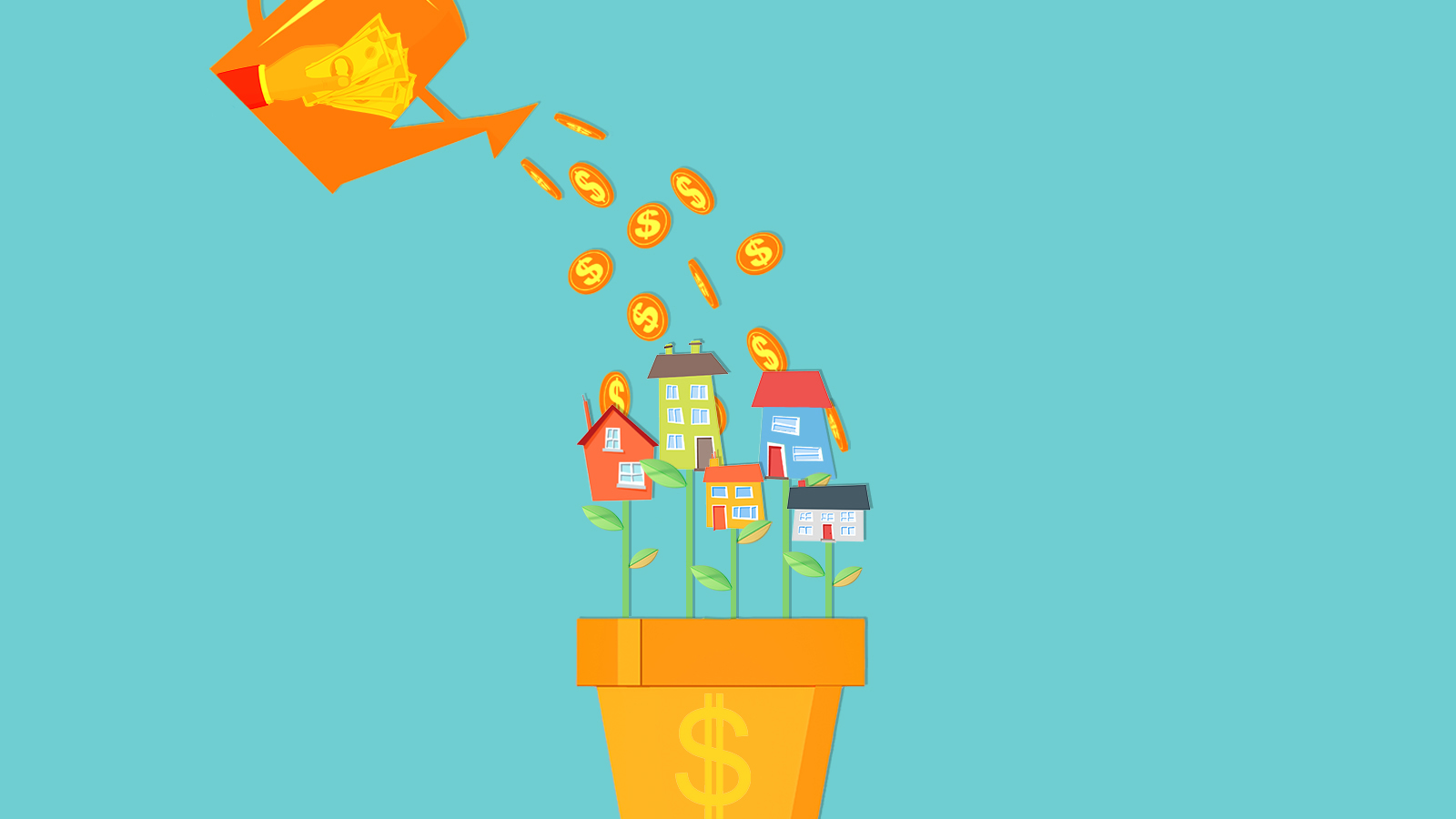When does it make sense to borrow against your home's equity?
Consider what you plan to do with the money and whether that will benefit you financially in the long run


A free daily email with the biggest news stories of the day – and the best features from TheWeek.com
You are now subscribed
Your newsletter sign-up was successful
If you've built up home equity, it's possible to tap it for cash. There are two popular ways to do so — home equity loans and home equity lines of credit (HELOCs) — and in recent years, these borrowing options have blown up in popularity. "In the second quarter of 2023, the number of new home equity loans and HELOCs jumped by 53% and 21%, respectively, compared with the same period in 2021," according to The Wall Street Journal, citing a report by the credit bureau TransUnion.
This popularity is correlated with an "increased demand for renovations," a popular use of home equity funds, per the Journal. That increased demand is, in turn, related to skyrocketing mortgage rates, which have led to homeowners to become "less interested in selling (which would mean trading in a low interest rate for a much higher one) and more apt to stay put and update their existing homes instead," according to the Journal.
How can you tap into your home's equity?
Home equity loans and HELOCs let you borrow against your home's equity, but they work a little differently. As Forbes stated, a home equity loan is a "second mortgage that allows you to borrow against your home equity and receive funding in a lump sum." Repayment of the principal, plus interest, begins immediately, with set monthly payments over a certain period of time. Per Bankrate, a home equity loan is "ideal if you have a large, immediate expense" or prefer the "stability of predictable monthly payments."
The Week
Escape your echo chamber. Get the facts behind the news, plus analysis from multiple perspectives.

Sign up for The Week's Free Newsletters
From our morning news briefing to a weekly Good News Newsletter, get the best of The Week delivered directly to your inbox.
From our morning news briefing to a weekly Good News Newsletter, get the best of The Week delivered directly to your inbox.
When you apply via our links, we may earn an affiliate commission.
A HELOC, on the other hand, functions similarly to a credit card in that you can "withdraw as much as you want up to the credit limit during an initial draw period," per Bankrate. As you repay the amount borrowed, you can use it again, providing "flexibility to get money as you need it."
What are the pros and cons of home equity products?
If you're contemplating tapping your home equity, it's important to know the pros and cons. Upsides include:
- Lower interest rates: One of the biggest advantages of home equity products is their low interest rates. Home equity products are "almost always the cheapest debt, so the interest rates are lower than credit cards and other unsecured debt," Jeff Levinsohn, the CEO of equity tracking platform House Numbers, told the Journal.
- Flexibility in use: Homeowners can "technically use the funds they get from home equity loans and HELOCs for any purpose," per the Journal. Common uses are home renovations or remodeling.
- Potential tax benefits: In certain instances, you may be able to deduct the interest you pay on a home equity loan or HELOC.
But there are the following drawbacks:
A free daily email with the biggest news stories of the day – and the best features from TheWeek.com
- Borrowing costs: According to Bankrate, some lenders "charge additional fees for home equity loans or HELOCs." For instance, you may pay closing costs.
- Potential to lose your home: Because home equity debt is backed by your home, you risk losing it if you fail to make payments. "If home values drop, you could also wind up owing more on your home than it's worth," which can make selling difficult, per Bankrate.
- Possibility of a rate increase: Home equity products can have an adjustable rate, which means your interest "could go up unexpectedly, increasing your payments," warned Bankrate.
When is a home equity loan or HELOC a good idea?
Before you weigh a home equity product, it's important to determine how much home equity you have. According to the Journal, lenders "generally require that you maintain at least 20% equity in the home after taking out a home equity loan or HELOC." There are other financial requirements you'll need to meet as well, including a "credit score in the mid- to high-600s and a debt-to-income ratio of 43% or less," per the Journal.
From there, consider what you plan to do with the money and whether that will benefit you financially in the long run. "Borrowing against your home for unnecessary expenses or vacations are usually not advisable as you're racking up debt using your home as the collateral," reported Forbes.
And make sure you have a plan for how you'll repay the debt and that budget could handle it if payments end up increasing alongside the prime rate down the road.
Becca Stanek has worked as an editor and writer in the personal finance space since 2017. She has previously served as the managing editor for investing and savings content at LendingTree, an editor at SmartAsset and a staff writer for The Week.
Becca Stanek has worked as an editor and writer in the personal finance space since 2017. She previously served as a deputy editor and later a managing editor overseeing investing and savings content at LendingTree and as an editor at the financial startup SmartAsset, where she focused on retirement- and financial-adviser-related content. Before that, Becca was a staff writer at The Week, primarily contributing to Speed Reads.
